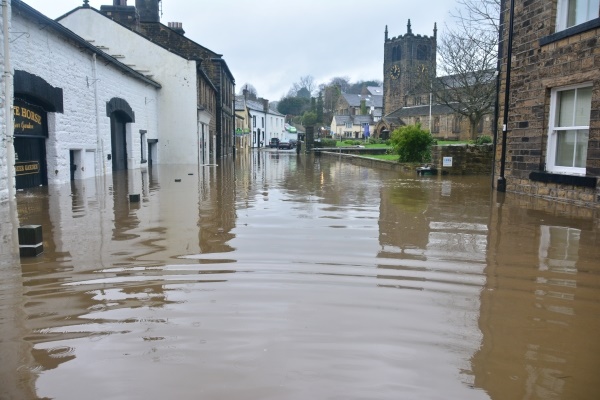
The Impact of Climate Change on the Construction Industry
Climate change poses a significant threat to the world we live in, and its impacts are already being felt across the globe. Rising temperatures, more frequent natural disasters, and changing weather patterns are just a few of the consequences of this phenomenon. The United Kingdom, in particular, has experienced a series of extreme weather events in recent years, such as devastating floods and heat waves, which have had a profound effect on various industries, including construction and insurance. As a result, it is essential to examine the implications of climate change on these sectors and explore ways to mitigate its impacts. This article will provide an overview of the effects of climate change on the UK’s construction industry and insurance sector, highlighting the challenges they face and potential solutions to ensure their resilience in the face of a changing climate.
Climate Change and the UK Construction Industry
The increased frequency of floods, storms and heatwaves can cause significant delays and damage to construction projects, leading to increased costs and timelines. For example, heavy rainfall and flooding can cause soil erosion, landslides, and water damage to buildings, while high winds and storms can lead to structural damage and debris.

Moreover, rising temperatures are affecting building materials and construction methods, requiring adjustments in construction schedules and worker safety measures. For instance, hotter summers may require longer breaks for workers, altered work schedules, and increased hydration measures to prevent heat exhaustion. Additionally, some building materials such as bitumen, used in roofing and paving, can become less durable and flexible in high temperatures, requiring alternative materials or specialised application techniques. Proactively addressing these challenges through adapted construction practices and materials can help minimise the impact of climate change on the industry.
Implications for Construction Insurance
The growing risk posed by climate change has significant implications for the construction industry and its insurance providers. As extreme weather events become more frequent and severe, the need for more secure insurance coverage becomes increasingly important. Traditional insurance policies may not adequately cover the risks associated with climate change, leaving construction companies vulnerable to financial losses. To address this gap, new insurance products and protections are emerging that are tailored to the unique risks posed by climate change.
For example, insurance policies that cover business interruptions caused by extreme weather events or provide protection against flood-related damages are becoming more popular. Additionally, there is a growing demand for more comprehensive coverage options that take into account the long-term impacts of climate change, such as sea level rise and increased frequency of natural disasters. Insurers who understand these risks, such as Construction Insure, and offer innovative solutions can help construction companies better manage their risk exposure and ensure their resilience in the face of a changing climate.
Regulatory and Policy Responses
In response to the urgent need to address climate change, regulatory and policy responses have been evolving in the UK to ensure safer and more resilient construction. Recent changes to building codes and regulations reflect this shift, with a focus on improving energy efficiency, reducing carbon emissions, and enhancing flood resistance. For instance, the latest versions of the Building Regulations and the National Planning Policy Framework introduce stricter requirements for new buildings to meet certain energy performance standards, use sustainable materials, and incorporate features that mitigate the impacts of extreme weather events.
Moreover, the UK government has introduced various initiatives and incentives to encourage the adoption of greener construction practices. The Green Deal scheme, for example, provides financing for homeowners and businesses to invest in energy-efficient upgrades, such as solar panels and insulation. Additionally, tax incentives like the Enhanced Capital Allowance Scheme reward developers who prioritise sustainability in their projects. These efforts aim to create a low-carbon economy, decrease the nation’s dependence on fossil fuels, and enhance community resilience to climate-related hazards.
Adapting Construction Practices for a Changing Climate
As the UK construction industry grapples with the challenges posed by climate change, there is a growing recognition of the need to adapt construction practices to ensure buildings are resilient and sustainable. One key approach is the use of sustainable building materials and technologies, which can significantly reduce carbon emissions and promote environmental sustainability. Innovative materials such as cross-laminated timber, bamboo, and recycled plastic are gaining popularity, along with renewable energy sources like solar power and geothermal heating.
Examples of resilient construction projects in the UK include the Greenwich Peninsula Ecology Park, which features a living wall designed to absorb rainwater and provide insulation, and the Bullitt Centre in Glasgow, which uses renewable energy sources and recycled materials to achieve net zero energy consumption. By embracing sustainable practices and incorporating resilient design principles, the construction industry can create buildings that not only adapt to changing climates but also contribute to a more sustainable future.
The Future Outlook
The impact of climate change on the construction and insurance industries in the UK is expected to continue and intensify in the coming years. Rising temperatures, more frequent and intense weather events, and increasing sea levels will pose significant challenges to building design, materials, and infrastructure. Flooding, droughts, and heatwaves will become more common, and construction projects will need to be designed and built with these factors in mind.
To adapt and thrive in this changing climate, construction companies will need to invest in better insurance policies that cover the risks associated with climate change. This will include policies that protect against flood and storm damage, as well as those that provide adequate coverage for building owners and occupants in the event of a disaster. In addition, construction companies will need to work closely with insurance providers to ensure that their policies are aligned with the changing risks posed by climate change.
The impact of climate change on the construction industry is a pressing concern that requires proactive measures to mitigate its effects. The industry must adapt to changing environmental conditions by adopting sustainable building materials, designing buildings that can withstand extreme weather conditions, and investing in renewable energy sources. Construction companies need to work closely with insurance providers to ensure adequate coverage for the risks associated with climate change. By taking a proactive approach, the industry can not only survive but thrive in a changing climate.

